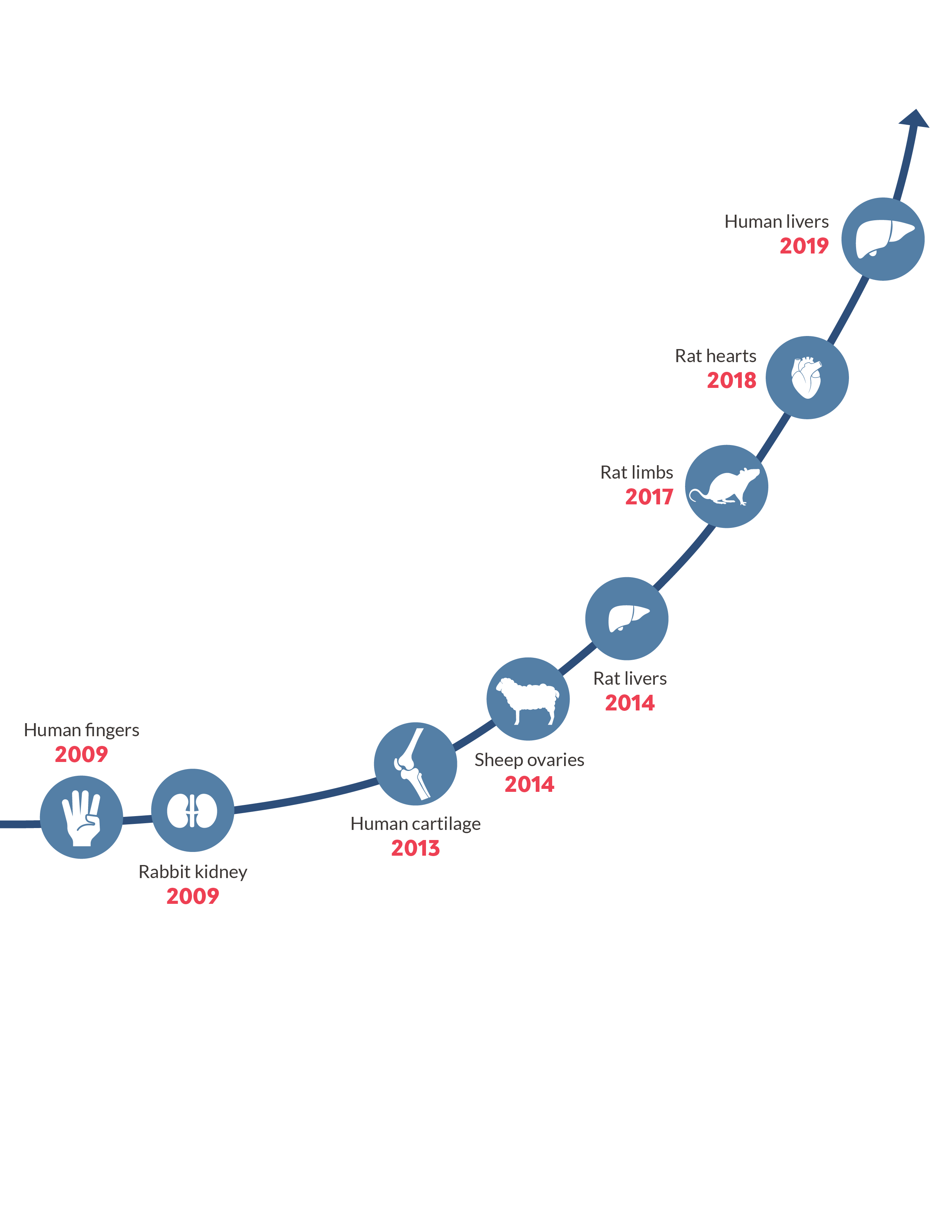The Biostasis Research Institute was born out of a collaborative effort to overcome a global grand challenge in medicine
As a result of a NASA program, the Organ Preservation Alliance (OPA) was established in 2014 to advance cryopreservation research. A 7-year global consensus-building process laid the groundwork for the Biostasis Research Institute.
2014
To create a modern-day Apollo Program in cryopreservation, the Organ Preservation Alliance (OPA) is founded after a Global Solutions Program project at NASA Ames Research Park in Silicon Valley.
2015 — 2016
The U.S. government releases the first targeted research funding for long-term preservation of whole organs and large tissues ($15 million).
2015 — 2017
With its partners, OPA publishes a National Science Foundation-funded technology roadmap to organ cryopreservation, followed by a consensus paper in the preeminent scientific journal Nature Biotechnology with the major U.S. transplant societies, Nobel and Breakthrough Prize winners, and other thought leaders.
2015 — 2017
OPA and its partners organize meetings at the White House, on Capitol Hill, Dept of Defense and Organ Banking Summits at Harvard, Stanford, NASA, and elsewhere.
2018
Supported by a $2 million Bitcoin donation from the Pineapple Fund, OPA begins planning the Biostasis Research Institute including an openly competed site selection for new research centers to be funded by the Institute.
2018-2020
OPA works with teams at Massachusetts General Hospital and the University of Minnesota to plan two new research centers to lead inaugural Biostasis Research Institute research. OPA leads a matching donation campaign, and consortium grant applications are submitted to the National Science Foundation, Gates Foundation, MacArthur Foundation, and others.
2020
The first research consortium grant is awarded: ATP-Bio, led by the founding teams of the Biostasis Research Institute’s two planned research centers. Approx $80 million is expected from the National Science Foundation and matching partners.
2021
The Biostasis Research Institute is launched, including two new research centers at Massachusetts General Hospital and the Institute for Engineering in Medicine at the University of Minnesota.
The Biostasis Research Institute builds on a decade of progress in organ cryopreservation research
With peer reviewed reports of below-freezing temperature storage across different organs, tissues, and species. . .


Menu
Copyright © 2021 Biostasis Research Institute. All Rights Reserved.
